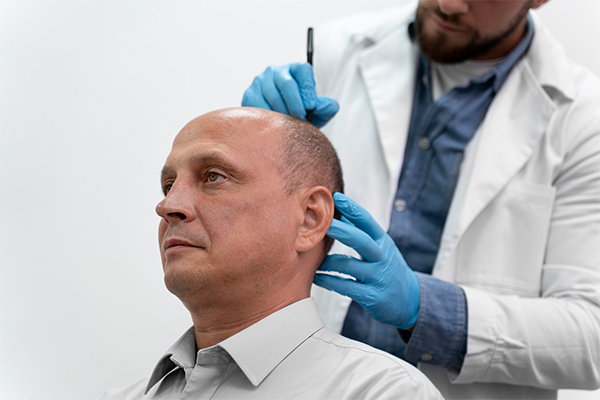Can a Hair Transplant Fail?

A hair transplant is an effective and safe solution to hair loss. Most of the time, the procedure offers positive overall results, and individuals regain the sense of security that comes from looking and feeling younger. However, in rare cases, a hair transplant can fail due to a variety of circumstances.
If you’re considering a hair transplant procedure, your first step should be to educate yourself about the treatment. Consulting a hair transplant clinic with highly specialized doctors and a proven track record of success will help you become acquainted with the procedure and the potential problems you may encounter.
In this post, you’ll learn the most common reasons a hair transplant can fail as well as how to improve your chances for a successful outcome.
Reasons Hair Transplants Can Fail
A number of factors can cause a hair transplant to fail, including the following:
- Inexperienced surgeon: Philadelphia and the surrounding areas have become inundated with doctors adding hair transplant services to their practice to try to boost their bottom line. These individuals are not hair transplant specialists and don’t understand the meticulous methods involved in both Follicular Unit Transplantation (FUT) and Follicular Unit Extraction (FUE), the two most common hair transplant procedures. These inexperienced surgeons treat hair transplants like an “add-on” service rather than a specialty that requires experience and skill.
- Improper graft handling: One of the most common mistakes an inexperienced surgeon can make is the improper handling of grafts. For the hair roots to thrive, the graft must be handled carefully and positioned correctly, a skill that requires precision, dexterity, and experience. An improperly handled graft can cause the hair follicles to dry out, which can, in turn, lead to loss of that graft and failure to grow a hair.
- Unsuitable candidate: Although hair transplants are an excellent solution for male and female pattern baldness, not everyone is a suitable candidate. Some people have thinning hair but are not yet ready for a hair transplant. Also, a hair transplant may not be the solution for those with pre-existing medical or genetic conditions, such as lupus and certain forms of alopecia. Your hair transplant specialist should be able to evaluate your medical history and look into possible future hair loss to ensure that your procedure will continue to look good for years to come.
- Poor post-operative care: A hair transplant is a permanent solution to hair loss, and how you take care of your scalp after the procedure may be as important as the operation itself. After your treatment, your doctor will provide you with detailed instructions on how to care for your new hair grafts. Scratching your scalp as it heals may cause loss of grafts and even infection. Poor hygiene can also be an issue. Fortunately, as long as you follow your physician’s directions and treat your scalp with care, you should not experience any problems.
- Dishonest hair transplant clinic practices: Some clinics practice dishonest and even illegal procedures. For example, some doctors have unlicensed non-professionals complete their surgeries, while they themselves are absent from the procedure room while critical parts of the hair transplant process are taking place. This practice is against the law in New York and other states but still happens rampantly, so it’s essential to do your research ahead of time and read patient reviews about the clinic you wish to visit.
What to Know So That Your Hair Transplant Is a Success
Having a specialized hair transplant surgeon who understands the intricacies of the procedure is the best way to ensure a successful outcome. But with so many doctors claiming to specialize how can you tell the best from the worst? A very effective way is to see how much that doctor participates in online hair transplant chat sites. Only the very best volunteer for that level of public criticism. The clinic you choose should be transparent with their results, and their patient reviews should show that they’ve had many satisfied customers (at least 100 before after photos). You also want to choose a hair transplant surgeon with years of full time experience in this field. Avoid doctors who clearly perform hair transplantation as a side income.
When you choose the right doctor, they’ll do everything in their power to ensure successful results, including:
- Asking for a detailed medical history and information about your family history to determine if you’re a suitable hair transplant candidate
- Supervising the entire hair transplantation procedure accompanied by highly trained in-house support staff
- Providing detailed post-operative instructions so that you fully understand the healing process
- Providing videos that demonstrate the results they produce regularly and how they achieve such results
Powell Medical Hair Transplantation is a clinic based in Philadelphia, PA, dedicated exclusively to hair restoration services. Our licensed and experienced physicians perform each procedure themselves, bringing their years of knowledge to bear for each patient they serve.
We invite you to contact us online to schedule your consultation so that we can determine if you’re a viable candidate for a hair transplant procedure. You can also call us at (516) 487-3797.













